Pitching a literary agent – it’s a conversation, not performance art!
I recently attended an all-day agent pitching workshop hosted by the Idaho Writer’s Guild. Four well known literary agents — B.J. Robbins, Amy Rennert, Gordon Warnock, Ken Sherman — shared their expertise about the publishing industry and at the end of the day many of us had the opportunity to pitch them on our own books.
I recommend that every writer take advantage of this opportunity if they have the chance. It can definitely be a nerve wracking experience but also a great education that simply is not available unless you just do it.
“A good editor is a writer’s best friend. It’s a gift to be edited and critiqued.” ~ B.J. Robbins
As cool as it is to pitch your book to an agent, there also can be some disappointment involved. My publisher, Elaine Ambrose, owner of Mill Park Publishing, touches on that in her recent blog and has had an excellent recap of the experience as well as some good advice for writers. She writes:
“Some of the new and naive writers expected to be offered a contract that day; the experienced writers knew they would be fortunate to be asked to send a few chapters for the agent to review later. When we present next year’s conference, it will be interesting to learn if any of our eager and talented writers are working with an agent. I’m convinced that some will go onto the next round.”
The authors at the workshop were as varied as books on a library shelf and our works included non-fiction, fantasy, humor, memoir, history, crime, mystery, and on and on. One of the joys of attending was meeting so many talented folks.
My first pitch was less than stellar, which sort of threw me for a loop because that particular agent was the one who I had hoped tohave the most connection with my book. Let’s just say I left the pitch session feeling a bit deflated, but after sharing my frustration with a couple other writers who have more pitching experience, I got a second wind and went into my next pitch session with high enthusiasm and no expectations.
My second pitch was with B.J. Robbins, owner of the B.J. Robbins Literary Agency in Los Angeles, who was friendly, amusing and engaged in our conversation. At the end of my 10 minute meeting with her she asked me to send her a query and my first three chapters.
Prepare, practice, pitch!
Writers need to remember that agents also go into pitch conferences hoping to make a connection. Writers want an agent to represent their work, agents want to meet writers who they can get excited about. It’s all about getting your work published.
Literary agents specialize in different genres so before you even sign up for a pitch session, find out what genre the agents represent. Who are their authors? Do they represent any books that are like yours? Go to their website, read their blog, find out as much as you can. Pitch only those agents who are a good fit for your work.
One thing we kept hearing during the day is that a pitch is a conversation, not performance art. Agents hate scripted “pitches.” Talk to the agent. Tell them your story. You should figure out how to describe your book in one or two sentences. As agent Amy Rennert said, “Don’t tell too much during the pitch. Ditch the in-depth descriptions about every chapter and character and scene. You’ve only got a few minutes to tell your story.”
“Agents don’t know you. Everything an agent knows about you, you’re going to tell them and show them. Don’t be shy. You need to be your best promoter.” ~ Elaine Ambrose, publisher
The trick to a good pitch is to practice it so it becomes second nature, almost like a conversation. As someone who has worked in public relations for 30 years, I approached it just as I prepare to do an interview with the media. I figured out my main message (or SOCO = Single Overriding Communications Objective), jotted down a few must-say points on an index card, and then flipped on my laptop webcam and videotaped myself giving the pitch. Playing it back was sometimes painful to watch but it really helped me see how I looked delivering my pitch – was I comfortable with my words? Did I look like I knew what I was talking about? Was I enthusiastic? Confident? I also got feedback from friends and other writers.
Dress for success
Think about it – a pitch session is really like a job interview. You are hoping the agent sees something in you and your work that will make them want to bring you on to their team. As such, they want to see that you understand publishing is a business. I’m sorry to say that I saw some shabby, sloppy writers there at the workshop. Dress for the occasion. No, you don’t have to dress formally, but you do need to be clean, pressed and as presentable as you would in a job interview.
Pitching:
When it’s your turn to go into the pitch session, be confident, enthusiastic, and take an index card with your key points. Agents don’t want manuscripts right then and there – if they like your idea they will ask for you to send a few chapters.
Introduce yourself and take a seat. At this point, you might want to make a bit of small talk to break the ice. When I sat down with B.J. Robbins we had a brief conversation about martinis, where she and the other agents had eaten dinner the night before and how she was enjoying Boise. By the time I started talking about my book, I felt more at ease and better acquainted with her, and found her to be quite amusing. The pitch session evolved into a nice conversation and she asked me some really good questions about my book. Thankfully, I had prepared and knew my subject well.
“You need to keep writing every day. Persist! Persist!” ~ Ken Sherman
Agents understand that writers will feel nervous about pitching, but they want us to just try and relax. Most of us will naturally have “butterflies in our stomach” in anticipation of the meeting, but I am a firm believer that preparation can greatly reduce that anxiety. Plus, if we are shaking and sweating and shifting around in our chair, that does nothing to help an agent stay concentrated on your book.
As my publisher Elaine Ambrose said, “Agents don’t know you. Everything an agent knows about you, you’re going to tell them and show them. Don’t be shy. You need to be your best promoter.”
Some writers will get an invitation to send the agent some chapters and a query letter; other writers may not find a good agent fit. No matter what the outcome, having the opportunity to pitch agents who otherwise might seem to be unreachable is a great experience.
Here are some additional points I picked up during the agent workshop:
- Use the pitch as a dialogue. Don’t be nervous.
- Don’t feel a pitch is successful just because an agent wants to see more of your work.
- Agents can tell 99 percent from a query letter. A writer needs confidence and passion.
- Most publishers don’t accept unsolicited material.
- Figure out, where does the book fit on the bookshelf. Tell that to the agent.
- Show you’re a good writer. Get to the point. Send in the first three chapters automatically.
- Send only the best, most polished manuscript to an agent.
- A good editor is a writer’s best friend. It’s a gift to be edited and critiqued.
- If you keep getting rejected, get an editor to go over your work.
- Talk about comparable works in your query.
- Agents are there to guide you and help you stick up for yourself.
- Publishers will not buy anything if they are not ready. Decisions to buy a book are made by committee.
- Now is the best time to be a writer. Anyone can be published. There are lots of options available, including self-publishing.
- Don’t try to write to the current trends. You have to see where the logical progression in the future is going to be. By the time you figure out a trend in publishing, the industry likely has moved on. Try to anticipate a couple years ahead.
- We are looking for a “special voice.” Write about your passion.
- The memoir is here to stay, however it is tougher to sell.
- Blog writers can parlay their blogs into a book.
- Writers need to take on more responsibility of the marketing. Do not think your work is done after it sells.
And, the one that keeps resonating in my head, “You need to keep writing every day. Persist! Persist!”
What about you? Have you done some agent pitching? I’d love to hear your perspective and any tips you might have, plus any stories of good and bad experiences. Please post them here!
Thanks for visiting Murphy Writes.

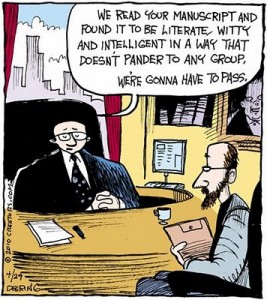






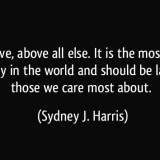



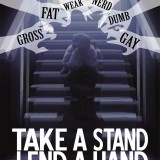
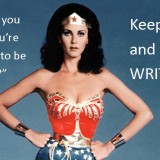


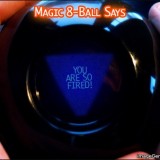








I agree with you K.J. I wonder if the lack of response is because they are so busy and simply can’t find the time? Even so, like you said, a simple polite no thanks is so much better than total silence that leaves you wondering. Thanks so much for your input.
I have attended three writer’s conferences and have pitched my novels at both. I have received invitations to send samples to agents–and nice thank you, but no thank you letters. I still consider it money well spent because every pitch is a connection to the industry.
What really is upsetting is the lack of reponses from agents. A polite no thanks is better than being ignored.